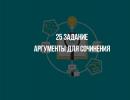Profession of a teacher: distance learning and its features. Future teachers will take an exam on the ability to work with children - Rossiyskaya Gazeta
Teacher primary classes is a noble and intelligent profession. Usually they achieve success in this area and stay for a long time due to their vocation. Be sure to learn more about the specialty if you think you are a natural elementary teacher. Where can I get the education and necessary qualifications for employment within this profession?
Teacher description of profession
At first glance, it seems that the main task and function of any teacher is to teach his students. This true statement for most sciences and fields of knowledge. And yet, a primary school teacher is a rather specific profession. Within the framework of this position, an employee of a general education institution must be simultaneously an educator, teacher and psychologist. A primary school teacher must teach his pupils to read, write and educate them. Where to get an education of appropriate quality, you should think in advance. Working with elementary school students has a lot of subtleties. The teacher must find an individual approach to each of his students. In addition to studying the general education program, an elementary school teacher engages in amateur artistic activities with children, organizes the cultural life of the class, and prepares his students to participate in school-wide and city competitions. Do you think you know how to work as a primary school teacher? Don’t forget that the specifics of this profession also involve working with documents and productive interaction with students’ parents.
Pros and cons of teaching

People who love children very much and enjoy communicating with them feel good in the position of teacher. Perhaps it is for this reason that predominantly women work as teachers in primary schools in our country. If you are just thinking about how to become a primary school teacher, it will be useful for you to know about the disadvantages of this profession. Working with children of any age requires good endurance, psycho-emotional stability and limitless patience. Teachers have to repeat the same material many times and resolve conflicts among students. Having chosen this profession for yourself, you will definitely encounter a variety of children's pranks. If you don’t like children or consider yourself a hot-tempered person, you shouldn’t even apply to a pedagogical university.
Is higher education necessary?

Today you can obtain the specialty “primary school teacher” in institutions of secondary specialized and higher education. Until recently, it was indeed possible to get a job in a school with a college or technical school diploma. However, more recently, new education standards were approved, according to which higher education for teachers is necessary. Teachers with secondary specialized education who are already working in general education institutions can improve their qualifications without interruption from work. What should those who only dream of this profession, how to become a primary school teacher, do? The education necessary for employment can be obtained at any pedagogical university. After ninth grade, you can enter a lyceum or college for your chosen specialty. However, do not forget that after receiving a diploma of secondary specialized education, you will also have to submit documents to the university. How long will the training take? The program of secondary special educational institutions is designed for 3 years for students admitted after the 9th grade. For students studying on the basis of 11th grade - for 4 years. At the university, the bachelor's program lasts 4 years, and the master's program lasts 2 years.
Primary school teacher training
A pressing question for applicants: “What exams must be passed to enter the specialty “primary school teacher”?” Studying at a university or college is possible for those who, after completing 9 or 11 grades, have passed Russian language, mathematics, a foreign language and a specialized subject - biology. It is worth noting that in last years This specialty is not very popular among applicants. This means that theoretically there are chances to get an education on a budget basis, even with average Unified State Exam scores. In practice, everything depends on the popularity of a particular educational institution. Teaching is a profession in which you can make a career only if you really have a high level of knowledge. In private educational institutions, teachers' salaries are quite high. But only the most talented specialists with an excellent understanding of child psychology have the opportunity to get a job and stay in their chosen position for a long time.
Personal qualities required for work

What should an ideal primary school teacher be like? “My reference point is my first teacher!” - say the majority of applicants who choose this specialty. Indeed, many adults remember their teacher from elementary school all their lives. A real teacher must have a balanced character and have communication skills with the audience. A high level of culture, the ability to improvise and flexibility of thinking are also useful qualities for a teacher. It is advisable to have good diction. Love for children and boundless patience have already been mentioned above, and yet these are the most important qualities for a primary school teacher.
Career prospects, salary levels for primary school teachers

How much does a primary school teacher earn? Where to get an education to get more? In our country, the level of wages for education workers still leaves much to be desired. Primary school teachers receive 8-25 thousand rubles monthly. Salaries depend on the region, level of educational institution and employment of a particular specialist. Career prospects within this specialty are insignificant. After working in one school long enough, you can get the position of head teacher. Many teachers seek employment in private schools and education centers. Typically, in such institutions the salary level is higher and there are more prospects for promotion. In addition, any primary school teacher can easily get a job as a kindergarten teacher.
Enroll in a pedagogical college after 9th grade - good idea. After all, school graduates who go to study at professional educational institutions after 9th grade they combine completion of secondary education with vocational education. As a result, after 3–4 years of study, they can already get a job. At the same time, if you wish, you can continue your studies at a specialized university, for example, a pedagogical university.
Pedagogical colleges accept students after the 9th grade mainly through full-time study. In this case, the period of study is usually 3 years 10 months. In case of studying in advanced programs, you will have to study for 1 year more. In this case, you can count on getting a position related to personnel management.
Popular materials
In a pedagogical college, not all specialties are available after 9th grade. There are certain restrictions. Below is a list of specialties for which you can enroll in pedagogy. colleges with a certificate of secondary education:
- Preschool education (advanced training)
- Corrective pedagogy in primary education (in-depth training)
- Pedagogy of additional education (in-depth training)
- Teaching in primary school (advanced training)
- Vocational training (by industry) (advanced training)
Special preschool education(in-depth preparation) Admission to a pedagogical college after 9th grade is possible based on the results registered in the certificate. To enroll, you must submit an application and documents confirming completion of 9th grade to the Pedagogical College. In most cases, enrollment occurs automatically. However, there are specialties and areas of training in which competitive selection takes place.
FAQ:
What exams do you need to take at the pedagogical college after 9th grade?
The set of exams depends on the chosen profession and specialty. Some specialties can be entered without entrance examinations. Detailed information It is best to look at the exams for a pedagogical college on the official website of the educational institution.
How to enter a pedagogical school after 9th grade?
To enter a pedagogical school based on 9 grades, you must choose a specialty and submit documents to the admissions committee. Depending on the chosen direction, the applicant will be offered entrance tests. In addition, you can enroll in a pedagogical college after 9th grade on a commercial basis.
What subjects do I need to take to enter a teacher training college?
The list of subjects that applicants must know to successfully pass the entrance examination is determined in relation to a specific specialty. In addition, for one specialty in different educational institutions there may be different conditions receipts.
How to become a teacher after 9th grade?
It is necessary to find a pedagogical college that trains 9th grade graduates to become teachers. In fact, not many educational institutions offer such a service. If a graduate really plans to connect his life with the work of a teacher, then after 9th grade he can enroll in any specialty similar to a teacher. After receiving a diploma in this specialty, he has the right to continue his studies at higher education. educational institution already a teacher
Where there is teacher training colleges after 9th grade?
On our website, in sections dedicated to different cities, you can find information about teacher training colleges after 9th grade. Below are links to articles about pedagogical colleges in Moscow and St. Petersburg.
Why don’t people take you to teacher training college after 9th grade?
A number of pedagogical colleges really do not have the ability to train specialists on the basis of 9 classes. In addition, admission to a teacher training college may be denied due to lack of the proper level of preparation.
Why do we need courses at pedagogical colleges after 9th grade?
School students attending such courses can prepare for admission to a pedagogical college. In addition, in a number of courses, college students can obtain an additional specialty.
What do you need to enter a teacher training college after 9th grade?
Documents must be submitted. The list of documents should be viewed on the official website of the educational institution in the admissions section.
pedagogical colleges of St. Petersburg after 9th grade
pedagogical college in Moscow after 9th grade
In Russia, teachers are trained at 167 universities. On average, about 100 thousand future teachers graduate from them per year. At the same time, according to opinion polls, only 10 percent of graduates agree to work at school. And is it any wonder if 80 percent of applicants admitted that they are going to study not at all in order to later sow smart, kind, eternal things, but for the sake of a diploma and a general humanitarian higher education, with which you can always get a job somewhere.
To change the situation, the Ministry of Education and Science has prepared a draft concept for supporting the development of teacher education, which will change the entire system of teacher training.
The great physicist Albert Einstein also did not have much luck with teachers. Photo: ITAR-TASS
There are a lot of complaints about graduates. They do not know how to work with a team, they are not ready to move to the new school standards, which became mandatory three years ago. And what’s surprising is that they don’t like children. This is what, for example, the director of school N2 in Skopin says: Ryazan region Elena Ivanova: “The school lacks teachers of physics, mathematics, and the Russian language. We need teachers, but I have many complaints about pedagogical institutes: they teach in the old-fashioned way, and pedagogical practice is also organized in the old-fashioned way. As a result, graduates have no idea even about the methodology lesson."
It happens that previously convicted people and teachers who were generally deprived of the right to teach for professional incompetence end up in schools. As it turned out, in one of the Moscow schools there worked a teacher of Russian language and literature, who at one time Kaluga region found to be unsuitable for professional work. Getting settled in new job, she hid it. What this woman taught the children is a big question.
How to rid a school of bad teachers? How to attract the best graduates of pedagogical universities into the education system? What kind of selection should be done for applicants-future teachers?
This is what is being proposed today: teachers who have received a good education, at least a master’s degree, will be given increased salaries, and students and interns will be paid for all teaching practice and internship at school. It will now be more difficult to enter pedagogical universities. Additional entrance exams will be introduced for pedagogical specialties. 
The target enrollment will remain, but the requirements for applicants - future teachers - will become much stricter. So, after studying at a pedagogical university, whether you like it or not, you will have to return home to practice. Or pay a fine, as prescribed in the new Law “On Education in the Russian Federation”. By the way, the person who issued the referral but did not hire the graduate will also pay a fine.
Universities will have universal and pedagogical bachelor's programs, and master's programs will be developed for those who already have higher education and would like to teach at school. Teacher training programs will open for students who want to become teachers.
Let us remember that Konstantin Dmitrievich Ushinsky did not receive a pedagogical education at all. He brilliantly graduated from the Law Faculty of Moscow State University. Anton Semenovich Makarenko after school first went to the railway school, and only then to pedagogical courses.
There will be a master's degree program for teachers, methodologists and managers. Priority will be given to those already working in the education sector.
As part of the experiment, 25 of the best pedagogical universities will open their departments in schools. And teachers at pedagogical institutes will be able to improve their qualifications even at the Academy of Sciences. In total, from 17 to 25 universities will be included in the program at the first stage. In 2016-2017, the experience will spread to all universities.
Teacher, who is he?
According to latest research Institute of Pedagogical Education of the Russian Academy of Education, the portrait of the average school teacher today looks something like this:
Woman 47 years old;
Has a higher pedagogical education (almost 82 percent);
Receives less than 20 thousand rubles;
I rarely go to the theater;
I am not very confident in using a computer.
Competently
Which teacher training universities should be closed? Who will pay for teaching internships for students? When will there be an additional exam for future teachers? Deputy Chairman of the State Duma Committee on Education Nadezhda Shaidenko tells RG about this.
- If future teachers have to take an additional entrance exam, how will it be held?
Nadezhda Shaidenko: This should be a kind of test for professional suitability. Can't be allowed in primary classes a teacher who can't pronounce half the letters of the alphabet. Teachers who don’t like children should not be allowed into school; there is no place for evil people. At one time, I was the rector of a pedagogical university for many years, and when parents asked how to choose a first-grader good teacher, I advised: “Come to school during class and listen outside the door to how the teacher communicates with the class. If he screams, stamps his feet, kicks someone out, you need to run away from such a teacher.” School is not a place for people with weak nerves. All this can be checked using psychological tests.
According to the results of the first monitoring, 71 percent of teacher training universities were found ineffective. Why do we need such pedagogical institutes?
Nadezhda Shaidenko: Each case of closure of teacher training universities must be considered separately. In Tula, for example, there are only two state universities left - classical and pedagogical universities. And there are many such cities. Many pedagogical universities once “hid” behind the signs “humanitarian institute” or “social academy”, but continue to train teaching staff. In monitoring they are not considered pedagogical, but in essence they are. And if earlier we talked about pedagogical universities, now we are talking about pedagogical education, which can actually be obtained at different universities.
- In the concept, it will be divided into applied and universal bachelor's degrees. What it is?
Nadezhda Shaidenko: Applied pedagogical bachelor's degrees will be opened in colleges and pedagogical institutes and will graduate, for example, primary school teachers. A universal bachelor's degree will be open to subject teachers and will become a higher level of teacher qualifications. A bachelor's degree is not always designed for four years. There is also a five-year course, for example, for faculties with double majors: physics-mathematics, biology-chemistry.
The next level is a pedagogical master's degree, and the concept specifically stipulates that master's degree graduates will receive a higher salary. Such education will be required if a teacher, for example, is preparing to work in inclusive schools or classes. What the increase will be, how it will be calculated, all this still needs to be spelled out and discussed. If a teacher goes to study for a master's degree, his workload at school will be reduced, but his salary will remain the same.
- The concept states that universities will be able to open departments in schools. How do you imagine that?
Nadezhda Shaidenko: It must be taken into account that universities and schools are financed from different sources. Schools come from the municipal budget, and universities come from the federal budget. So all the details of network interaction must be worked out in detail and legally prescribed. Interbudgetary financing is a very complex issue.
- Who will pay for internships and internships for students at the school?
Nadezhda Shaidenko: There's nothing new here. The internship was always paid for from the university’s pocket and was calculated based on the hours spent by the student or intern at the school. By the way, the concept assumes different types internships. This includes three years of support for young teachers by more experienced mentors.
- Which faculties of pedagogical universities are most in demand among applicants?
Nadezhda Shaidenko: Faculty of Computer Science. They do well in biology and chemistry. Traditionally, many enroll in the history and philology faculties. They are less likely to choose the physics department because they know physics less well and do poorly on the Unified State Exam in physics. Although there is a catastrophic shortage of teachers in this subject.
The concept says that students will be able to choose individual trajectories - this is a truly valuable and innovative thing. Everyone will have the opportunity to change their training programs and change already at the stage of study future profession. For those who suddenly realized that they want to be a teacher, and not an engineer or a doctor, there will be an opportunity to get a pedagogical education.
Meanwhile, a teacher standard has been developed for the first time in Russia. What does the “standard” look like? According to its authors, now all school teachers should be generalists: master the latest teaching methods, know psychology, understand medicine, master correctional pedagogy, computer technology And project activities, as well as much more.
On the one hand, everyone agrees that we need to work at the maximum level. But it is difficult to demand from people what no one has ever taught them. Or they once taught a little at university, but then never used this knowledge in their lives.
Evgeny Yamburg, chairman of the working group for the preparation of the draft pedagogical standard, director of the Moscow Education Center N 109:
In fact, the standard should make the teacher free, free him from enormous paperwork, preparing reports, inspections and giving the opportunity to do their direct business - teaching schoolchildren. The main risk for the implementation of the standard is the active use of administrative resources and an attempt to implement the “five-year plan in two years.”
Local officials are demanding the implementation of something that has not yet been approved or even fully developed. There are regions where, under the slogan: “We are for inclusive education, it is spelled out in the professional standard,” correctional schools for children with mental problems are closed, and students with special needs are transferred to regular educational institutions. In fact, everyone suffers from this: teachers, who quickly completed monthly advanced training courses, are simply not able to ensure the normal functioning of a team in which there are such different students.
Isak Frumin, scientific director of the Institute of Education High school economics:
The professional standard will allow the quality of a teacher’s work to be taken into account when calculating his salary. Now throughout the country teachers' salaries are being increased - this is the implementation of the decision of the country's authorities. But this happens primarily due to an increase in load. The “hourly” ideology remains, when the main thing is to teach as many lessons as possible. The standard will allow you to link wages with qualifications that will be revealed during certification of the quality of work in accordance with professional standard. But this transition must be carried out very carefully. It is possible to introduce teacher certification only simultaneously with the introduction of professional standards into school life.
Marat Alimov, Russian language teacher at Moscow school No. 143, “Teacher of the Year” in Moscow 2006:
This standard is more focused on government orders, which we address to pedagogical universities, we say: this is the kind of teacher we need. But the problem is that average age teachers at school are becoming obsolete. The question arises: will this slightly romantic dream be suspended? Will it be possible to implement it in practice?
Going to school is like going to space
In Germany, future teachers choose two subjects at university that they want to make the basis of their education. Each student is required to take a course in Educational Sciences, which includes psychology, sociology, didactics and practice. You can become a teacher only after two state exams, which are conducted in specially created examination departments. They take exams for future teachers, doctors and lawyers.
To be admitted to the first exam, you must complete a master's degree, which takes about five years. The first exam tests theoretical knowledge of two core subjects and the Science of Education course. Then the future teacher must undergo a two-year practical training course at a primary or secondary educational institution. Students actually work in schools and receive the official government salary of a “preparatory teacher.” After practice, they must pass a second state exam. Usually in the form of a colloquium.
The second state exam is more important. It provides the opportunity to become a teacher, and the vast majority of German teachers receive the status of a government official. What does lifelong mean? workplace, impossibility of dismissal, payment of health insurance, vacation, high salary and state pension.
True, in Lately in some lands, young teachers began to be accepted into schools as civil servants - with lower salaries and without protection from dismissal. However, when hiring, the same requirements apply to them as to teachers with the status of a government official.
Rigorous training of teachers pays off: more than 90 percent of children study in public schools. There is a good free education that both parents and children trust.
All the professions in the world depend on a person who decided to devote his life to working with children and chose the profession of a teacher, because everyone is a simple worker, a doctor, a movie star, and political figure began their education from school.
The most vivid memories are always associated with the first teacher, so primary school teachers must have not only the appropriate education, but also high moral qualities and love for children.
In order to work as a primary school teacher, you must obtain a diploma confirming receipt of higher or secondary specialized pedagogical education in this specialty; you can also undergo training in a related or similar field. However, preference is still on the side of specialists with higher education, which is due to the specifics of this profession. After all, a primary school teacher is, in one person, a teacher and psychologist, an educator and music director, a mathematician and philologist, and also a “school mother.”
You can get a pedagogical education on the basis of 9 or 11 grades, which will take 3 and 4 years of study, respectively. Higher education of the first level is a bachelor's degree (4 years), and the second is a master's degree (2 years). There is also a third level, whose graduates teach in higher education institutions.
How to become a teacher without pedagogical education
Lately everything larger number young people express a desire to master the teaching profession and, according to the classical method, boys and girls submit documents to pedagogical colleges, universities and pedagogical institutes, the latter allows teaching in various subjects in high school secondary schools.
However, guided by changes in the school education system, which have been in effect since September 1, 2010, it is possible to hire people without specialized education to work in schools. Training can be carried out by a doctor, lawyer, economist, teaching a subject as close as possible to the specifics of their work. To obtain the proper qualifications, you must pass exams at one of the domestic pedagogical universities.
How to become a primary school teacher without pedagogical education
The same applies to primary school teachers. After all, a teacher is not so much a specialty as a way of life, a calling of the heart and soul. Often, even the highest education does not help if a person does not like children, does not have restraint and self-control, and cannot cope with his own emotions. Therefore, a naturally talented teacher can work without special education, having passed exams and confirmed his qualifications at the appropriate university.
How to become an English teacher at school
In order to teach English to children, it is imperative to acquire knowledge that not only teaches a foreign language, but also introduces them to the methods of teaching it at school. School methods are mastered at the pedagogical university at the faculty foreign languages, as well as at the university, choosing a specialization as a teacher in English.
A school English teacher is especially in demand; we can say that this is one of the most important professions of our time. After all, knowledge of English today is not just a tribute to fashion, but a necessity. Moreover, for the teacher himself, especially a young one, working at a school is an excellent experience in improving pedagogical and professional skills.
How to become a history and geography teacher at school
The profession of a school geographer and historian is one of those specialties for which love begins even when future teachers themselves go to school. Usually these are people in love with their region, all huge world and capable of childlike sincere joy in all its amazing manifestations, passing on knowledge and emotions to their students.
You can obtain the profession of a school teacher of geography or history by enrolling in the geographical or historical-geographical department of a pedagogical institute or university. The training time is usually 4 years.
But you can also get secondary pedagogical education, after which you can start labor activity as a primary school teacher, while simultaneously studying at the correspondence department of a higher educational institution.
How to become a physical education teacher
The importance of physical education for students is hardly worth reminding once again. Schools are in demand for professional teachers who are able to instill in children a love of sports and convey the extreme importance healthy image life, especially in conditions modern ecology.
You can get this profession at a technical school. physical culture only for full-time study. Graduates of the 9th grade usually study for 3 years and 10 months, and with a certificate of complete secondary education, the training period takes 2 years and 10 months.
Admission immediately after school to an institute or university in the department of physical education and sports will give you a diploma higher education, which can be obtained after studying at a technical school by choosing both full-time and part-time forms of study at a university.
You might be interested.






